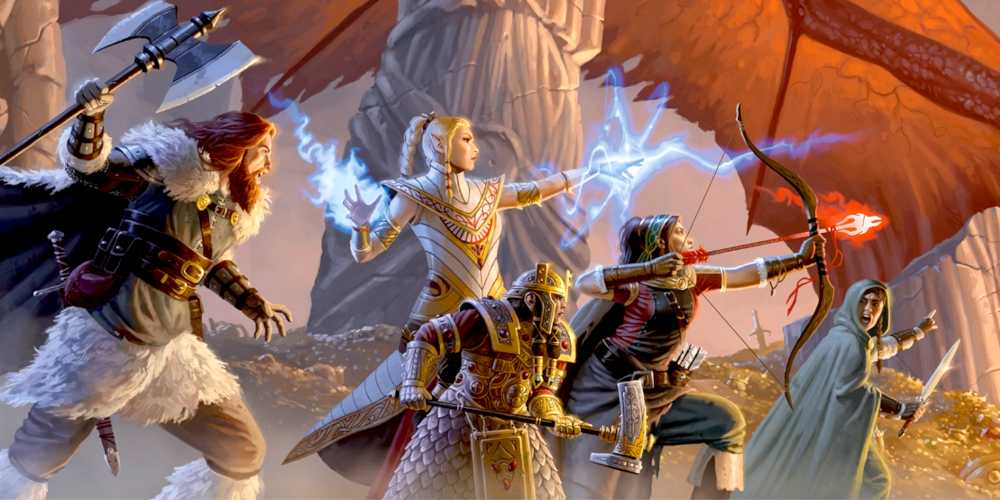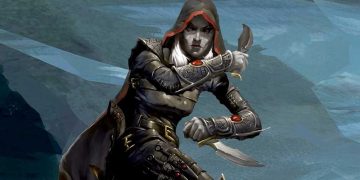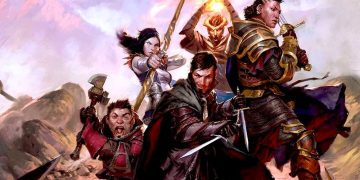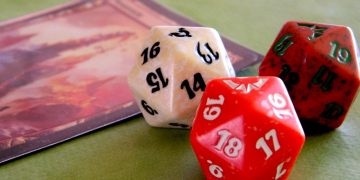As a new player to Dungeons & Dragons 5th Edition, one of the first choices you'll need to make is which class to play.
No other choice will impact your session or campaign as much as this one, because your class determines nearly everything you'll be able to do. Understandably, that can be somewhat overwhelming.
With 12 official classes in the D&D Player's Handbook—each with their own unique gameplay mechanics, strengths, and weaknesses—it'll take you a while to try each one and really learn the ins-and-outs.
So how are you to choose? Here's a quick and easy guide for anyone wondering "What D&D class should I play?" or "Which D&D class am I?" to find the one that'll best fit your playstyle.
D&D 5e Melee Classes, Explained
The Fighter
Because it has the simplest gameplay experience that's least likely to overwhelm, Fighter is the best D&D class for beginners. Not only does it offer lots of straight-forward class options that are easy to grasp and fun to use, but it forces you to get up-close-and-personal with enemies.
You get plenty of weapon options, armor options, and cool abilities that'll make you feel like a badass as you lead your party into combat encounters. And if you do want to spice things up with a bit more complexity, there are certain martial archetypes at 3rd level that allow you to incorporate spells.
The Barbarian
Like the Fighter, the Barbarian is one of the simplest melee classes without overwhelming complexity. It's geared toward brute-force physical combat, so if you want to be able to take loads of damage while dishing out plenty in return, this is the obvious class to pick.
The Barbarian is unique for its Rage ability, which increases your damage output while making your more resistant to various physical attacks, allowing you to hack away at enemies with reckless abandon.
The Rogue
If you like sneaking around, pilfering pockets, and taking a more tactical approach to combat encounters, consider playing a Rogue.
The Rogue's unique Sneak Attack feature provides some of the best burst damage—especially during the earlier levels—and allows you to be a destructive force. The drawback is that Rogues are fragile, so you have to be careful when diving into the fray.
Rogues work well for those who favor a high-risk-high-reward style of gameplay that can turn the tides of a situation in the blink of an eye.
The Monk
If the Fighter, Barbarian, and Rogue seem a little too straightforward for your tastes, you should consider the Monk.
The Monk is a mobility-focused melee class that can cross battlefields quickly (using your Step of the Wind feature) and pummel enemies into the ground with multiple attacks (using your Flurry of Blows feature).
You'll need to manage a resource called Ki in order to use the aforementioned class features, along with other class features gained at higher levels. That makes the Monk a more complex and more engaging melee combatant.
The Paladin
If you like the idea of a more complex melee combatant but don't think the Monk is right for you, consider the Paladin.
Paladins have the ability to inflict extra damage to enemies through their Divine Smite feature, but each Divine Smite sacrifices one of your spell slots. This resource management makes Paladins more engaging and thoughtful to play than traditional melee classes.
In addition, Paladins can support their party by healing members (using your Lay on Hands feature), sensing evil presences, and providing passive bonus effects through various Auras.
The Ranger
If you want to wreak havoc while dipping in and out for ranged attacks, doing what you can to keep enemies outside your reach and away from teammates, then the Ranger might be most fun for you.
Rangers are proficient with bows and arrows, able to befriend animals, skilled at using the terrain to their advantage, and useful for tracking enemies (which can come in handy on outdoor adventures).
Note that Rangers are often considered the weakest D&D 5e class because their core class features are flavor-heavy. We recommend looking into Unearthed Arcana for improved Ranger archetypes that are more practical for serious players.
D&D 5e Caster Classes, Explained
Caster classes in 5th Edition are typically more complicated than melee classes, but they can still be manageable for new players.
The Wizard
The Wizard is the most straightforward caster class in D&D 5e. Wizards learn spells by way of intense study, which grants them access to a wide range of abilities and utilities.
While Wizards have a vast repertoire of possible spells, you must "prepare" a select number of spells from your spellbook—you can only cast these spells. Your prepared spells can be switched out any time you perform a long rest.
Because of this, Wizards can be quite versatile as long as you think ahead to your next adventure and prepare spells accordingly.
The Cleric
Like the Wizard, the Cleric is another straightforward caster class that's one of the best D&D 5e classes for beginners.
Clerics differ from Wizards in that they gain their spells via dedication to a deity, rather than maintaining a spellbook. But the actual mechanics of the class are similar: you "prepare" spells during long rests, and you can only cast spells you've prepared.
Clerics can specialize in different Domains, allowing them to become support-oriented (Life Domain), combat-oriented (Death Domain), control-oriented (Light Domain), and more.
The Druid
The Druid class got a big upgrade in the shift from previous versions to D&D 5e. In addition to powerful spellcasting abilities, their Wild Shape feature gives them teeth and claws for use in melee combat.
They are slightly more limited in their spell selection than Wizard and Clerics, but that's offset by access to truly unique spells like Thorn Whip, Shillelagh, Wind Walk, and Storm of Vengeance.
Druids can change their prepared spells every in-game morning, making them a versatile option that's great for new players.
The Warlock
For those wanting a more specialized role in their party, the Warlock is a spectacular option. Warlocks gain their abilities through a pact with a supernatural entity, and their abilities are flavored toward whatever that entity is, giving them the flexibility to fill almost any role in a party.
It isn't the most newbie-friendly class in D&D 5e, given that Warlocks have a very limited number of spell slots compared to other caster classes. However, when they do cast a spell, it's likely to have a big effect—and they have one of the best Cantrips in Eldritch Blast.
The Bard
Like the Warlock, the Bard class lacks in spell slots compared to other caster classes. However, no other class can buff the party as well as a Bard, making them a premier choice for support players.
Bards have a unique class feature called Bardic Inspiration that allows them to bestow bonuses on allies in the heat of battle. They can also sing songs to heal allies, confuse enemies, inflict damage, and more.
Though they lack the magical firepower of Wizards and they're more complex than Clerics, Bards are jacks of all trades and can slip into any role in any party with the right build.
The Sorcerer
Of all the spellcasting classes in D&D 5e, the Sorcerer is the most complicated without question.
Sorcerers can only learn a limited number of spells compared to other caster classes, but their Font of Magic feature at 2nd level unlocks a special resource called Sorcerer Points, which can be expended to temporarily gain more spell slots.
At 3rd level, Sorcerers also gain access to their Metamagic feature, which allows them to expend Sorcerer Points to make spells inflict more damage, to increase the range or duration of spells, to cast spells using a Bonus Action instead of a normal Action, and so much more.
Sorcerers require careful resource management to be played to their full potential, so the class can be tough for new players who aren't familiar with the game.







